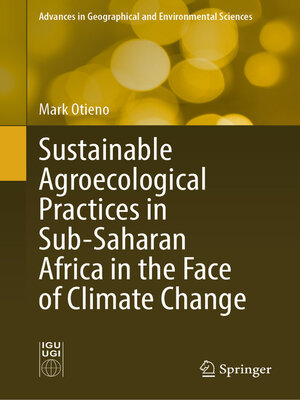Sustainable Agroecological Practices in Sub-Saharan Africa in the Face of Climate Change
ebook ∣ Advances in Geographical and Environmental Sciences
By Mark Otieno

Sign up to save your library
With an OverDrive account, you can save your favorite libraries for at-a-glance information about availability. Find out more about OverDrive accounts.
Find this title in Libby, the library reading app by OverDrive.



Search for a digital library with this title
Title found at these libraries:
| Library Name | Distance |
|---|---|
| Loading... |
This book emphasizes the critical importance of agroecological practices as a response to the climate crisis in sub-Saharan Africa. It explores the intricate relationship between agriculture, ecosystems, and climate, advocating for the transformation of farming systems to ensure long-term sustainability. Through research, case studies, and practical examples, the book showcases the potential of agroecology in addressing the impacts of climate change. Sustainable practices such as biodiversity conservation, resource preservation, soil fertility enhancement, and greenhouse gas emission reduction are extensively discussed, providing readers with a comprehensive understanding of the topic.
The book also highlights success stories from various countries in sub-Saharan Africa, aiming to inspire farmers, policymakers, and practitioners to adopt and sustain change. It acknowledges the vulnerabilities faced by smallholder farmers in the region and emphasizes the integration of traditional knowledge with scientific advancements. This integration is seen as essential in providing farmers with the necessary resources, information, and capacity-building opportunities to adapt to changing climatic conditions. The book emphasizes the need for collaboration and innovation among governments, research institutions, civil society organizations, and local communities to promote sustainable agricultural development.
Ultimately, the book advocates for sustainable agroecological practices as a means to achieve food security, enhance ecosystem resilience, and foster rural development in sub-Saharan Africa. By adopting climate-friendly agricultural approaches and maintaining ecological balance, it envisions a future where communities thrive, ecosystems flourish, and the impacts of climate change are mitigated.
The target audience for this book includes students, agroecology experts, farmers, policymakers, and agricultural practitioners who are interested in the subjectmatter.







